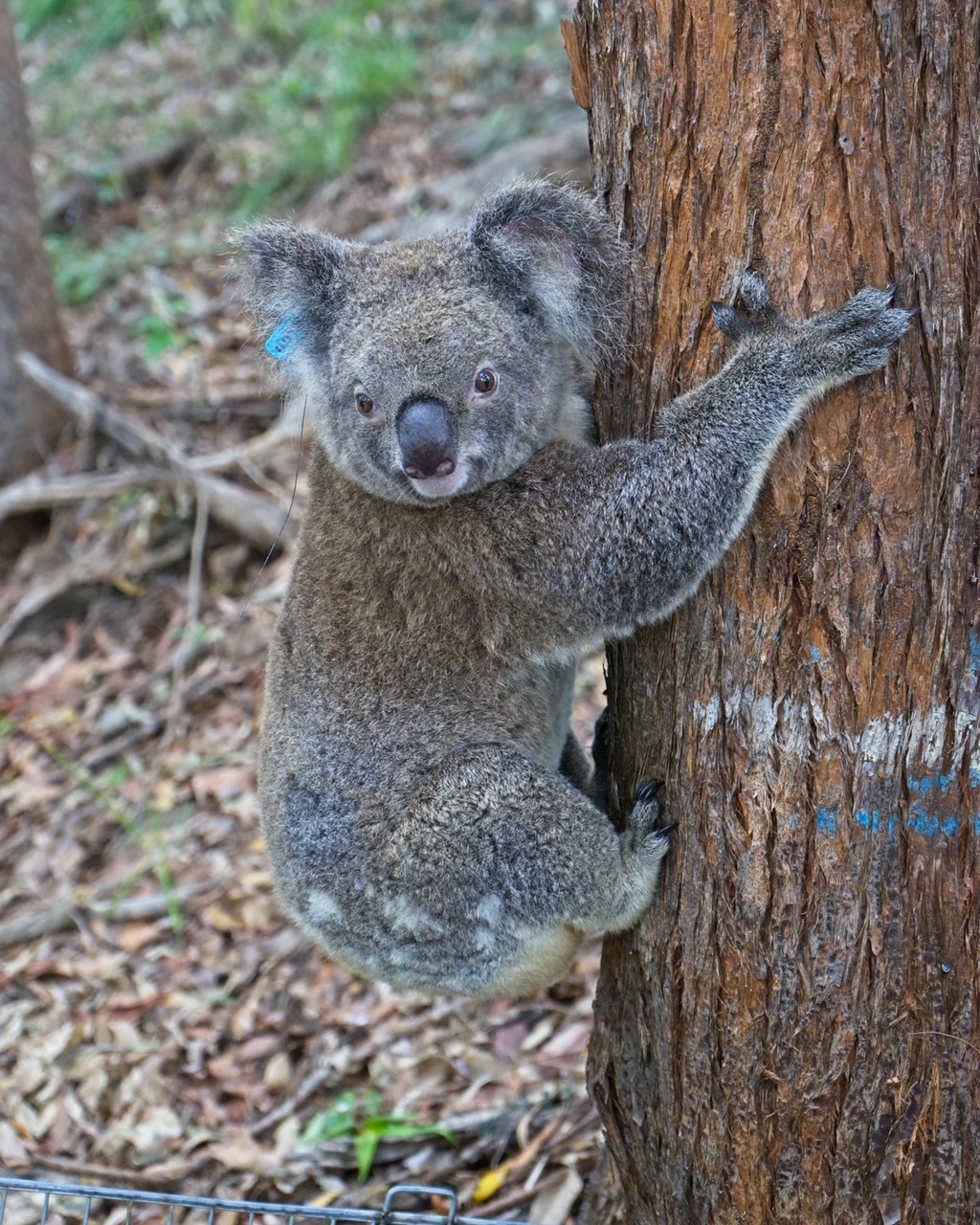In a research milestone, the first koala to receive the QUT-developed Chlamydia vaccine has been released from the program and back into the wild.
Three years ago, researchers from QUT and Currumbin Wildlife Hospital started trials as part of a life-saving Koala Chlamydia vaccine research.
In that time, more than 250 koalas in total have been vaccinated as part of the program in two studies.
One study has vaccinated and tracked about 30 koalas from an isolated colony of koalas in Elanora with a high incidence of Chlamydia and the other study involved vaccination of all animals treated and released from the Currumbin Wildlife Hospital. About 15 per cent of these animals will return to the hospital and can be followed up.
Professor Ken Beagley, from QUT’s School of Biomedical Science, developed the first koala vaccine for Chlamydia. Since then, the leading immunologist has spearheaded the first immunisations of a wild koala colony in the Gold Coast hinterland after 10 years developing the vaccine in the lab.
The long-term project has provided a valuable opportunity for many QUT higher-degree research students and the research team currently includes two QUT postdoctoral researchers.
Working with Dr Michael Pyne OAM and the team at Currumbin Wildlife Hospital, the project has now resulted in up to 300 vaccinated koalas, with grand joeys being born to healthy females, using a two-shot vaccine approach.

Anne Chovee, which was the first wild Gold Coast koala to receive the vaccine.
Recently, she was admitted for her final check, before being released back into the wild, and officially released from the program.
“At the moment the koala vaccine is considered an experimental product,” Professor Beagley said.
“You can only use it with ethics approval from a university.
“We now have enough data to show the vaccine is safe and effective and so the next step is to go for registration. Once the vaccine is registered, it will be available more widely, and veterinary clinics and wildlife hospitals will be able to use it without delay.
“This technology will significantly increase our ability to vaccinate wild koalas to protect against chlamydial infections, a major cause of infertility and population decline.”
Dr Pyne said the release of Anne Chovee into the wild was “a huge milestone for our research”.
“Not only has Anne Chovee remained healthy and chlamydia free, she’s also produced a joey.
“We’re confident the vaccine will continue to protect her, and she no longer needs to be tracked or checked going ahead.”
The QUT and Currumbin Wildlife Hospital vaccine program aims to establish the level of vaccination required within an infected koala population to reduce the overall incidence of chlamydia and improve the associated fertility so that the population stabilises or increases.








